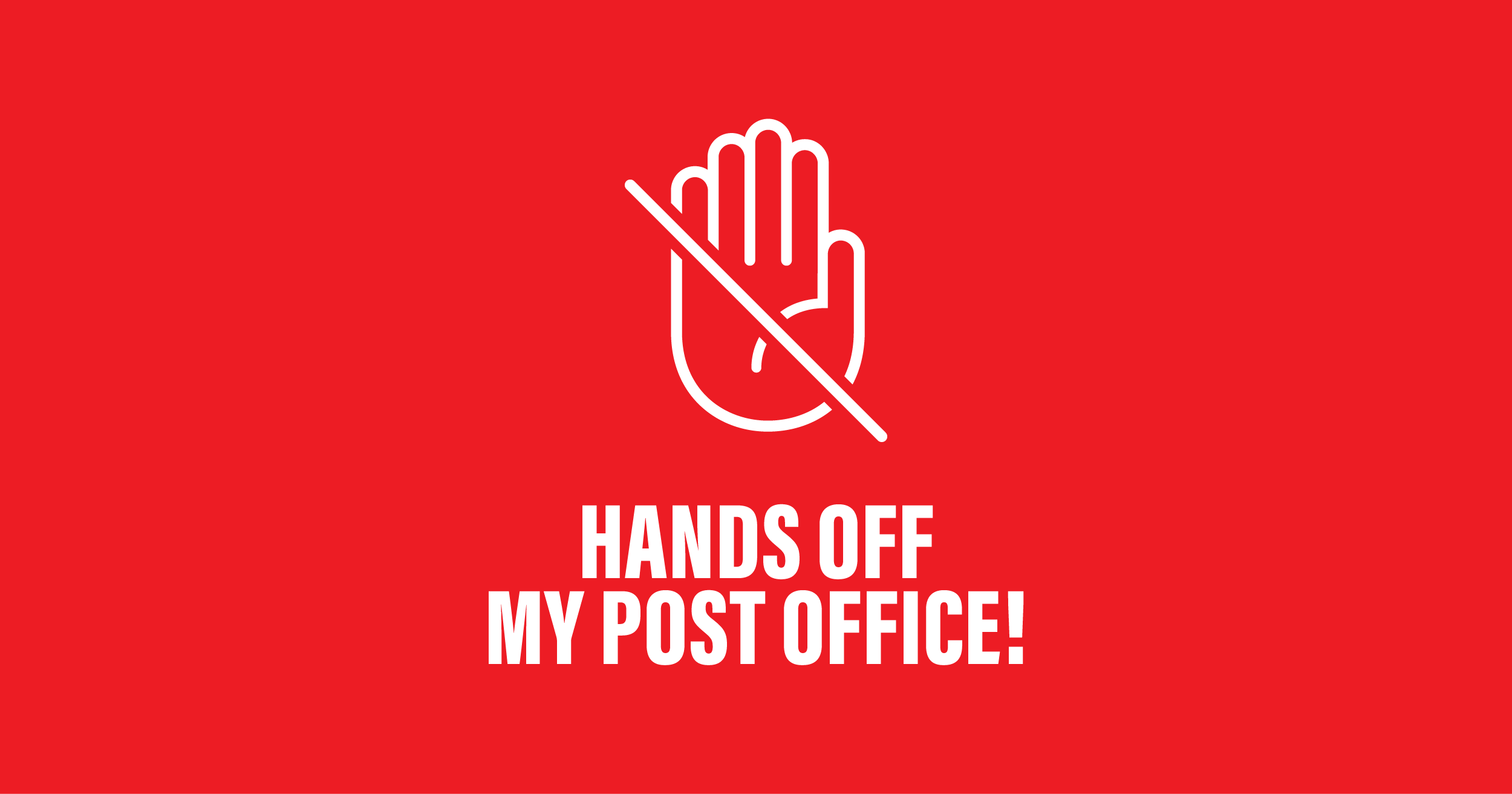
The saga at Canada Post continues, and once again the government is heeding management’s call to bail them out.
On May 30, Canada Post requested that new minister of jobs and families (Canada no longer has a minister of labour, if you hadn’t heard), Patty Hajdu, force Canadian Union of Postal Workers (CUPW) members to vote directly on the crown corporation’s “final” offer.
Canada Post’s ostensible final offer to the 55,000 members of CUPW included a compounded wage increase of 13.59 per cent over four years and up to $1,000 as a signing bonus, but still contained plans to expand part-time work and significantly reorganize the labour process.
In its release announcing the request to the minister, Canada Post said that “given the level of the impasse at the bargaining table and CUPW’s negotiating position, it is not possible to reach tentative agreements in the normal course.”
Under section 108.1 of the Canada Labour Code (CLC), the minister has the power to bypass a union’s bargaining representatives and compel members to vote directly on an employer’s offer. Such provisions, found in the CLC as well as other provincial labour relations acts, limit the ability of unions to resist employer concessions and provide governments with a lawful way to interfere in collective bargaining.
Should a simple majority of participating workers vote in favour of Canada Post’s offer, a new collective agreement will be imposed, ending the union’s ability to negotiate further or to engage in any additional work stoppages during this round of bargaining.
Understandably, CUPW interpreted Canada Post’s attempt to force a vote as an attack on its representation of members. In response, the union filed an unfair labour practice complaint with the Canada Industrial Relations Board (CIRB) accusing management of “bargaining directly with members, knowingly interfering with the Union’s exclusive bargaining rights and purposefully trying to discredit the reputation of the Union.”
The union’s complaint addressed employer activities beyond the request for a forced vote, including holding captive audience meetings and engaging in other actions meant to bypass union leadership, which, if true, would indicate a broader management effort to persuade workers to defy their union.
Hajdu initially responded to Canada Post’s request for a forced vote by urging the parties to return to the bargaining table with the assistance of federal mediators. On June 5, mediated bargaining resumed and the parties exchanged proposals on the possibility of resolving outstanding issues through arbitration. Earlier in negotiations, CUPW had called for arbitration, which the employer at that point summarily rejected.
However, it soon became clear that no common terms of reference for arbitration could be reached. According to the union, Canada Post attempted to use recommendations from the employer-friendly Industrial Inquiry Commission (IIC) report to set the parameters before the arbitration process even began.
Then, on June 12, Hajdu announced that she was accepting Canada Post’s request and would direct the CIRB to administer a forced ratification vote.
“The Minister’s decision is yet another assault on our collective bargaining rights, just the latest we have faced in a matter of just months,” CUPW national president Jan Simpson said in response.
“These repeated government attacks have poisoned the bargaining process [...] The Government’s actions have not helped to bring this impasse closer to a resolution. They have only pushed us further down the road [...] We will not stand by as the Government and Canada Post work together to try to undermine our hard-fought rights, gut our collective agreements and re-write them on their own terms. Postal workers know how to fight back. We’ve done it before, and we’re ready to do it again,” Simpson continued in the union press release.
At this time, no date has been set for voting. Following meetings with the union and employer, it will be up to the CIRB to set a date and determine the voting procedure.
As expected, CUPW is urging members to vote “no” and reject the employer and government effort to force an agreement without union consent. In a summary of the offer’s shortcomings, the union lists several issues that remain unaddressed.
First, CUPW notes that the employer’s wage offer is in fact far less than it claims, given past cost-of-living adjustments. The employer’s package would also see new hires wait longer to join the pension plan while rural members continue to receive insufficient vehicle payments. Meanwhile, multiple employer proposals would restructure the labour process, giving management more control, intensifying work and potentially increasing workplace injuries. The risk that part-time work expands and undermines job security, of course, also remains.
While Canada Post management may hope that an exhausted, frustrated bargaining unit ultimately votes in favour of its concession-filled package of proposals, such an outcome is far from guaranteed. In fact, if past precedent holds, CUPW members are likely to roundly reject Canada Post’s “final offer,” as union members routinely do when governments force ratification votes.
Canada Post management could even find itself in a worse bargaining position following the vote. Should CUPW prove successful in rallying its membership to turn out a strong “no” vote, the employer’s obstinacy will appear that much more unreasonable.
Time will tell. But one thing is certain: interfering in the collective bargaining process rarely produces the long-term outcomes that employers and governments desire. Workers’ anger and demands can’t be indefinitely ignored or suppressed.
For months, CUPW members have been fighting for a contract that protects good jobs and maintains Canada Post as a vital public service. Toward that end, they launched a full nation-wide strike last November.
The previous Liberal government chose interference over respect for the right to strike. Rather than allow the union to exercise its power, it instead forced workers back to the job and the union into an Industrial Inquiry Commission (IIC), the outcome of which seemed a forgone conclusion.
With its right to strike trampled and its bargaining power undermined, CUPW reluctantly participated in the commission, while also engaging in a simultaneous process of mediation that produced little.
Despite the union submitting detailed proposals aimed at addressing Canada Post’s financial position and protecting good jobs, commissioner William Kaplan produced a report that almost entirely advocated the position of Canada Post management, calling for ending most home mail delivery, shuttering rural post offices, and expanding part-time work to cover weekend parcel delivery.
Since the IIC report was issued, Canada Post management has predictably relied on its ‘findings’ to support the corporation’s continued calls for restructuring.
Canada Post is now trying to complete its attacks on workers through the alternative channel of a forced ratification vote.
But there’s nothing inevitable about the restructuring sought by Canada Post management. While the crown corporation’s previous model is reaching its end because of declining mail volume and unfair competition from parcel delivery firms with deplorable labour conditions, there are alternative paths forward that don’t simply mimic the worst features of the gig economy.
As Jon Milton at the Canadian Centre for Policy Alternatives argues, there are plenty of bold things that could be done to protect and expand Canada Post, including cracking down on gig economy firms, providing federal capital funding, transferring shuttered Amazon warehouses to the crown corporation, and expanding Canada Post’s letter monopoly to include small parcels.
Moreover, recent polling from Angus Reid suggests Canadians may be open to such progressive reforms. According to the polling agency, 59 per cent of Canadians oppose selling off Canada Post, while 47 per cent oppose privatizing it (vs. 38 per cent who would support privatization). Nearly two-thirds (64 per cent) say it’s important that Canada Post remain publicly-owned, and more than half are open to subsidizing its operations.
Instead, the federal government is doing management’s bidding by undermining the union and forcing a vote on a substandard offer.
It’s time for a response that puts the needs of Canada Post workers and users first.
Recent Class Struggle Issues
- June 16 | Exploring Our 300,000-Year Struggle for Equality
- June 9 | Workers’ Rights Are Collapsing Globally. Canada Is No Exception
- June 2 | Israeli Products Should Have No Place In Canada
- May 26 | Can CUPW Prevent The Erosion Of Full-Time Work At Canada Post?







